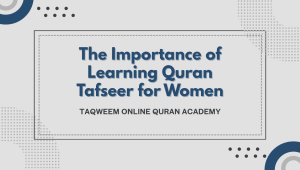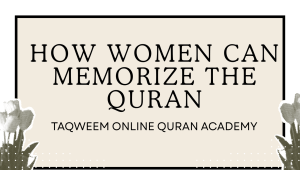Hasbunallahu Wa Ni’mal Wakeel 450 Times Benefits – The Real Secret of Tawakkul (Trust in Allah)
Introduction – The Hidden Beauty of Faith and Trust in Allah
When life gets heavy with pain, loss, or fear — one divine phrase brings instant peace to the heart:
“Hasbunallahu wa ni’mal wakeel” (حسبنا الله ونعم الوكيل)
“Allah is Sufficient for us, and He is the Best Disposer of Affairs.”
These words are more than just a dhikr — they’re a declaration of complete reliance (tawakkul) and faith (īmān).
When a believer detaches from worldly support and surrenders fully to Allah, this phrase becomes a spiritual armor — a shield of comfort, confidence, and divine help.

Meaning and Quranic Reference
This sacred statement appears in the Qur’an, where Allah mentions the Companions (RA) of Prophet Muhammad ﷺ:
“Those to whom people said, ‘Indeed, the enemies have gathered against you, so fear them,’ but it only increased them in faith. They said, ‘Hasbunallahu wa ni’mal wakeel.’”
(Surah Aal-Imran 3:173)
This verse beautifully reflects true tawakkul — when fear increases, believers don’t panic; they strengthen their trust in Allah.
Why Recite Hasbunallahu Wa Ni’mal Wakeel 450 Times?
Every dhikr carries divine energy.
Reciting “Hasbunallahu wa ni’mal wakeel” 450 times daily amplifies inner peace, strengthens faith, and brings unseen help from Allah.
Spiritual Effects of 450-Time Recitation:
-
Boosts faith and inner calm
-
Wipes out negative thoughts and anxiety
-
Attracts rizq (sustenance) and blessings
-
Builds a heart filled with certainty (yaqeen)
It’s a complete spiritual therapy — healing your soul, calming your mind, and strengthening your faith.

6 Miraculous Benefits of Reciting Hasbunallahu Wa Ni’mal Wakeel 450 Times
1. Relief from All Problems
Reciting this dhikr 450 times daily turns distress into peace.
It eases burdens, clears obstacles, and invites divine help.
Every repetition whispers faith into the heart:
“No problem is bigger than Allah’s mercy.”
2. Protection from Enemies and Jealousy
This powerful phrase forms a spiritual shield:
-
Keeps you safe from enemies’ harm
-
Protects from envy (hasad) and evil eye
-
Surrounds you with divine guardianship
Allah says in Surah At-Talaq (65:3):
“Whoever places his trust in Allah — He will suffice him.”
3. Blessings in Rizq (Sustenance)
Reciting this 450 times after Fajr invites barakah (abundance):
-
Expands halal income
-
Removes debts and financial pressure
-
Opens new doors of opportunity
Tip: After reciting, make dua for rizq — Allah never leaves a sincere heart unanswered.
4. Peace from Fear, Stress, and Anxiety
When fear controls your mind, this dhikr sets you free.
It:
-
Reduces anxiety and depression
-
Replaces fear with courage
-
Fills your heart with calm and strength
Because deep down, you realize:
“I’m not alone — Allah is with me.”
5. Guidance and Wise Decision-Making
Before taking any major decision, recite this phrase 450 times sincerely.
It will:
-
Illuminate your heart with wisdom
-
Protect you from wrong choices and deceit
-
Lead you toward barakah and success
It’s a dua for clarity — when you can’t see the way, Allah shows it.
6. Forgiveness and Spiritual Upliftment
This dhikr purifies the heart:
-
Washes away sins through repentance
-
Elevates the soul closer to Allah
-
Brings divine light (noor) and serenity
The one who says “Hasbunallahu wa ni’mal wakeel” sincerely, lives with peace, purpose, and protection.
How to Perform the 450-Times Wazifa
| Step | Action | Description |
|---|---|---|
| 1 | Make Wudu (Ablution) | Begin in a state of purity. |
| 2 | Face Qiblah | Sit calmly and focus. |
| 3 | Make Intention (Niyyah) | “O Allah, I recite this for Your help and mercy.” |
| 4 | Recite 450 Times | With full concentration and love. |
| 5 | Make Dua Afterwards | Ask Allah for your needs and guidance. |
| 6 | Continue Daily | For 7, 21, or 40 days — consistency brings results. |
Best Time: After Fajr or during Tahajjud.
Best Place: In a quiet spot where your heart feels close to Allah.
Real-Life Experiences & Miracles
Many righteous scholars and believers have witnessed miracles through this dhikr:
-
Protection from enemies and unseen dangers
-
Freedom from debts and financial worries
-
Emotional healing and inner peace
When you truly make Allah your Wakeel (Guardian), no power in this world can harm you.
Scientific and Spiritual Calmness
Modern psychology agrees — repetitive dhikr calms the mind and body.
Reciting Hasbunallahu wa ni’mal wakeel regularly:
-
Lowers stress hormones (like cortisol)
-
Increases mindfulness and focus
-
Promotes emotional balance
It’s both divine meditation and mental therapy — healing the heart through remembrance of Allah.
Conclusion – Walking the Path of True Tawakkul
“Hasbunallahu wa ni’mal wakeel” isn’t just a phrase; it’s a lifestyle of faith.
It teaches you to surrender your plans, worries, and fears to the One who controls all outcomes.
When you repeat it 450 times a day, your heart slowly detaches from fear and connects deeply with Allah.
“Whoever makes Allah his Guardian — Allah never abandons him.”
Join Taqweem Online Quran Academy
If you wish to learn Quranic duas, tajweed, tafseer, and daily adhkar like Hasbunallahu wa ni’mal wakeel properly —
then join Taqweem Online Quran Academy today!
🎓 At Taqweem Online Quran Academy, you’ll learn:
-
Quran with Tajweed
-
Daily Islamic Duas & Azkar
-
Tafseer & Translation
-
Quran Classes for Kids and Adults
Enroll Today and get your Free Trial Class!
Visit Taqweem Online Quran Academy and begin your journey toward spiritual peace and Quranic excellence.
FAQs
1. How many times should I recite “Hasbunallahu wa ni’mal wakeel”?
There’s no fixed number in hadith. You can recite it anytime — especially during fear, injustice, or hardship.
Scholars often suggest 7, 100, or 450 times for consistency and reflection.
Benefit: Peace of mind and strengthened faith.
2. What happens if I say “Astaghfirullah” 100 times?
The Prophet ﷺ said:
“I seek forgiveness from Allah more than seventy times a day.” (Sahih al-Bukhari)
Reciting “Astaghfirullah”:
-
Forgives sins
-
Brings relief and rizq
-
Purifies the heart and soul
3. What are the key benefits of “Hasbunallahu wa ni’mal wakeel”?
-
Inner peace and calm
-
Protection from fear and harm
-
Stronger tawakkul (trust in Allah)
-
Acceptance of destiny with contentment
It was recited by Prophet Ibrahim (AS) and Prophet Muhammad ﷺ — both were granted safety and victory through it.
4. What are the benefits of saying “La ilaha illallah” 100 times?
“The best remembrance is ‘La ilaha illallah.’” (Sunan Ibn Majah)
It renews faith, erases sin, and fills the heart with light.
It’s the most beloved phrase to Allah.
5. What are the benefits of Surah Al-Kawthar (1000 times)?
There’s no fixed authentic number, but reciting it:
-
Brings gratitude and blessings
-
Increases rizq
-
Reminds us of Allah’s mercy and gifts
The reward depends on intention and sincerity, not the count.
6. How can I make my dua accepted?
Your dua is more likely to be accepted when:
-
You’re sincere and humble
-
You avoid haram income
-
You make dua in special times:
-
In sujood
-
Between adhan and iqamah
-
During Tahajjud
-
On Friday before Maghrib
-
When it rains
-






